Life in Energy offshore for a Well Test Operator
This article focuses on the work of a Well Test Operator. Christopher Akaya works for Eastline Energy Resources Ltd and is based in Nigeria. As well as working in energy production he is a keen football fan and supports Chelsea FC.
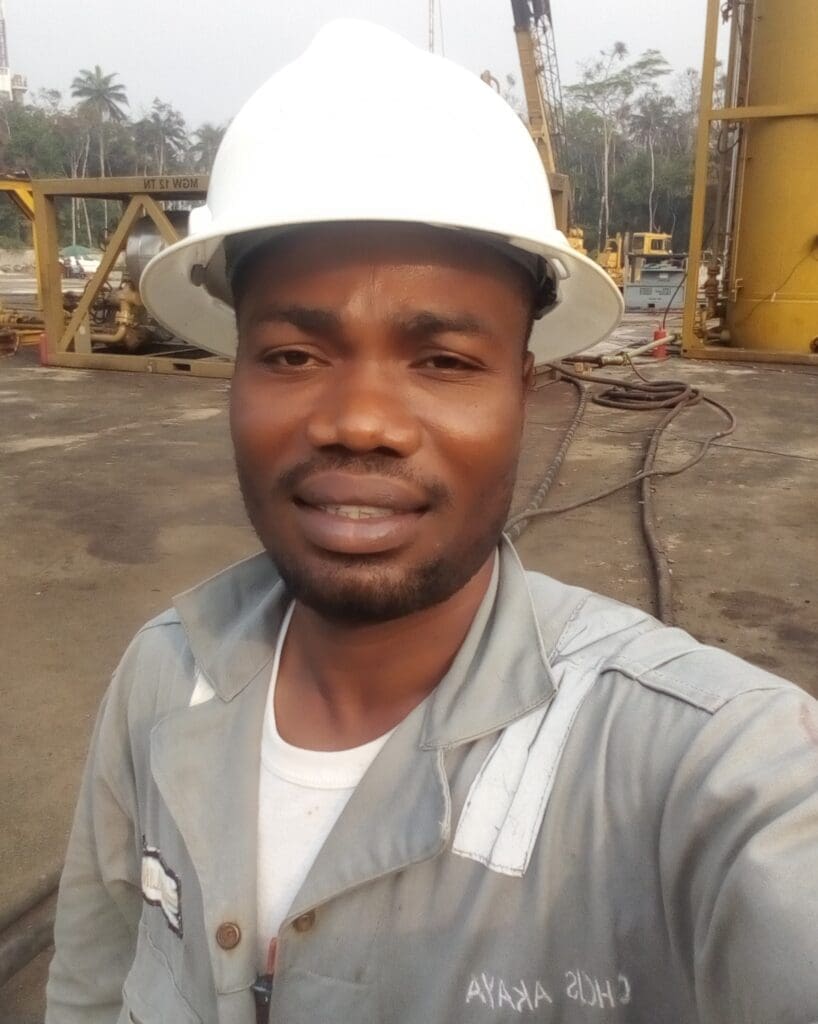

Working as a Well Test Operator in Nigeria
Background
Did science interest you as a child?
Yes, science interested me due to my curiosity of how things work especially seeing the beautiful rig platforms. I wondered how the rig could stand up in the sea and also the type of machinery used for drilling.
Was there anyone in your family who guided you towards science and engineering?
Yes, my brother. He studied electrical and electronic engineering and was already in the oil and gas industry. I saw the way he and his friends were doing well in the industry.
Why did you decide to study physics?
I actually wanted to study mechanical engineering back in university but didn’t get up to the cut off mark. So, I was offered physics. As physics is one of the fundamentals for any engineering degree, I decided to study it.
Who do you consider is the greatest scientist or engineer who has ever lived?
Isaac Newton, Albert Einstein and Thomas Mensah.
Languages
How many languages do you speak?
Two languages – English and Igbo (one of the Nigerian languages).
Do you think that speaking more than one language makes you a better communicator overall?
Yes of course, as it can help me explain better in understandable terms. For example, if I am working and everyone speaks Igbo and not everyone is fluent in English, I can use Igbo to communicate so that everyone understands what I am talking about easily.
Are you considering learning another language?
I would love to learn French due to its popularity as a language and also within Africa people in most countries speak French.
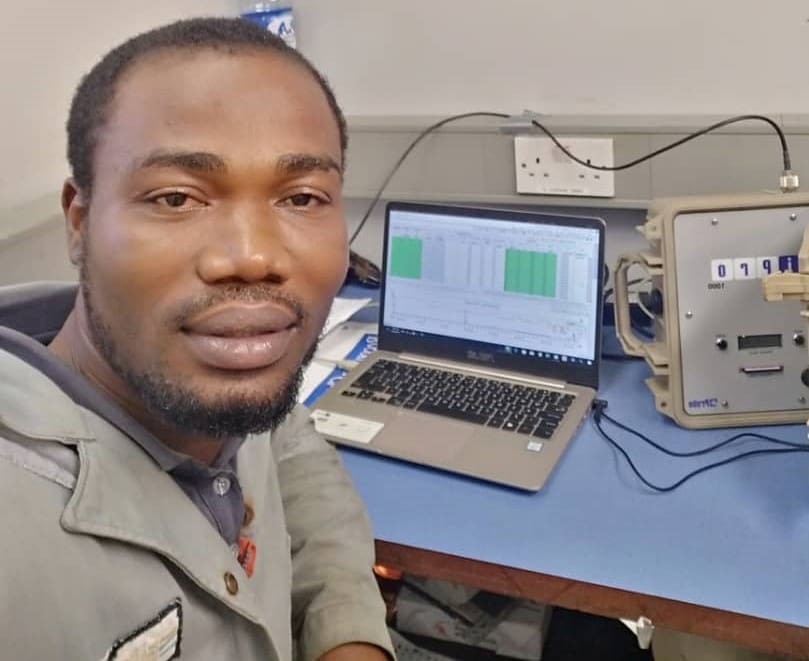

Well Test Operator/DAQ (Data Acquisition)
What exactly does the role of a Well Test Operator/DAQ involve?
A well test operator’s role involves the rigging up and down of equipment that is used in controlling the well during well testing. As well as comfortably operating the equipment.
The well test equipment includes:
SSV (Surface Safety Valve)
Desander
Choke Manifold
Test Separator
Surge Tank.
While the DAQ (Data Acquisition) involves gathering data about a particular well’s behaviour with the help of a transducer, logger, and computer. Such data can be the well’s pressure, temperature, oil flow rate, gas flow rate, or GOR (Gas Oil Ratio).
How much of your time is spent collating data?
Basically, when on a client’s location, I collate data for the whole shift thereby I spent 12 hours collating data.
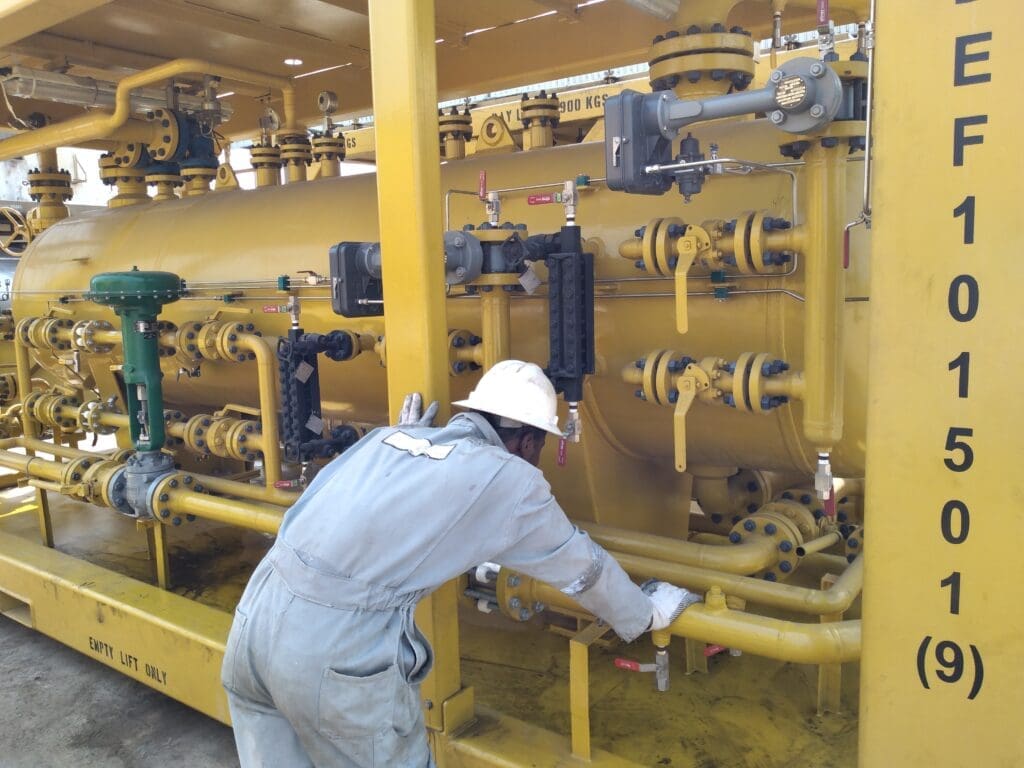

Typical week as a Well Test Operator
What’s your typical week like?
There’s never a dull moment. I can be at the base performing equipment maintenance, getting it ready for the next job or preparing a well test data report. Then during the weekend, I relax with my family and watch a football match. I support Chelsea FC – my beloved club.
Do you work on a shift or rotational basis?
Most of the time I work on a shift basis.
Do you have to be on call when you are not working? (if there is an emergency)
Yes, you can be called upon at any time.
Can you give an example of when you were called?
There was a period I came back from the field and took my time off. However, after two days I got a call at night from my manager requesting me to go back to the field as I am needed over there. That night I quickly packed my personal belongings and got ready to go back.
When you are offshore or onsite, how do you spend your free time?
My free time is spent playing snooker in the recreational room or watching football.
What do you miss most when you are offshore or onsite?
I miss my family and loved ones. Because of my work I have to deal with missing social events like weddings and birthday parties.
Which other people do you work with?
I work mainly with the sand monitoring crew and the boiler crew. These are the crews that are specialised and needed if the oil and gas well produces sand.
Most challenging part of the job of Well Test Operator
What do you find most challenging when you are working – technical side, other people, or logistics?
The main challenge is other people. Understanding people’s behaviour and knowing how to handle their behaviour so as to make everyone feel good so that the goals and objectives of the job can be achieved.
What has been your most challenging job so far?
Going offshore and travelling by ship. With the ocean waves, it was very intense.
Is your role ever uncomfortable because of heat, cramped spaces, bad lighting, noise etc? How do you personally deal with this?
Yes, it can be very uncomfortable because well testing produces lots of heat during gas flaring and the noise that comes in flaring the gases can be very loud. So, I handle this by keeping myself hydrated and staying away from the direct heat, and also putting on my protective earmuffs because of the noise.
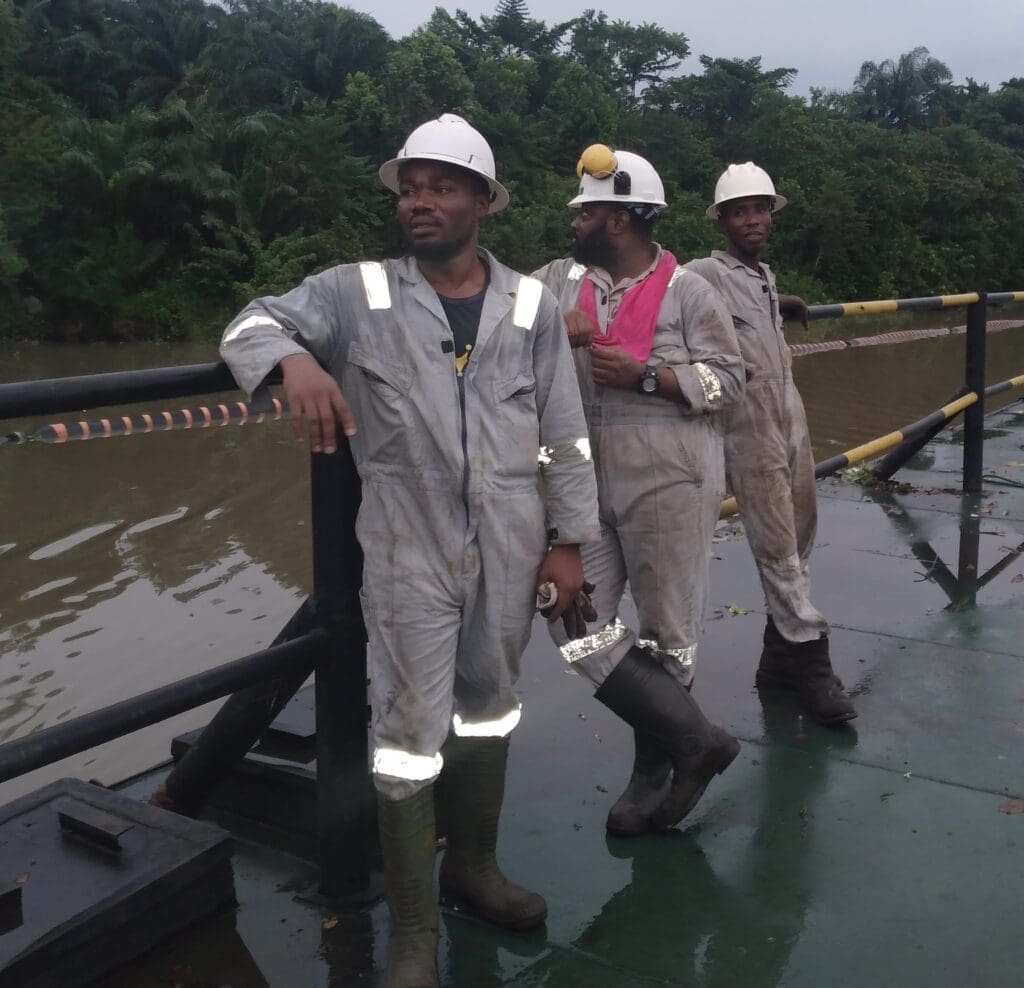

Advice for new Well Test Operators
If someone has just accepted a job as a Well Test Operator, what advice would you give to them for their:
first week?
Keep an open mind in order to learn and ask questions all the time.
first month?
Look for books on well testing so that you can read about it.
first year?
Participate in every job both at the base and client location and also get a mentor.
Apart from a strong technical background, what are the three most important skills to have for this role?
Be able to communicate, a team player, and able to work with minimal supervision.
How important are people and communication skills?
Very important. People need to communicate effectively to understand each other. If there is not good and successful communication between people, their goals cannot be achieved.
How important is ongoing training?
Training is important because it keeps you on industry standard and makes you relevant. For example, I have been on: ISO 9001:2015 Quality Management System, Risk Assessment Training, Well test module 1 & 2, HSE 1,2,3.
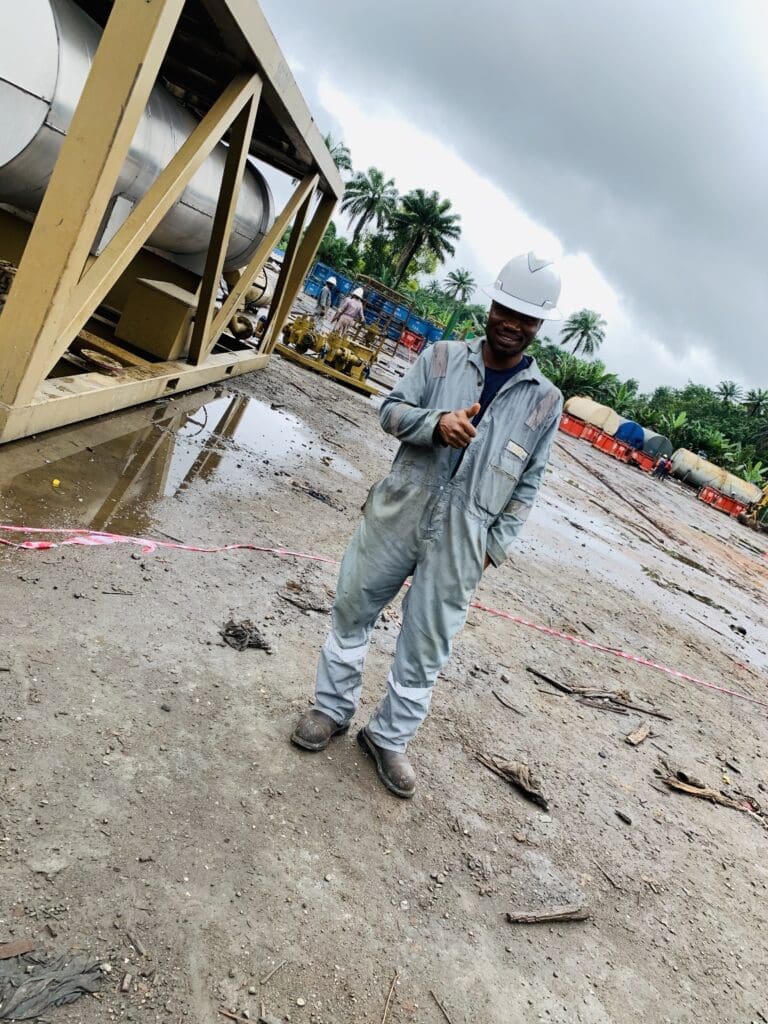

The future
How do you see your future in the oil and gas industry?
My future in oil and gas looks great.
Would you consider working in renewable energy in the future? And why?
Yes, renewable energy is the future and the future needs to be clean. We need to introduce more solar energy, and we can build wind energy out at sea. The whole world wants to go green because it is clean to the environment and to reduce the impact of climate change to the environment, and the sea level rising due to the ice melting.
Where would you like your career to be in ten years?
In ten years’ time, I hope to be making the move into a managerial position.


Responses